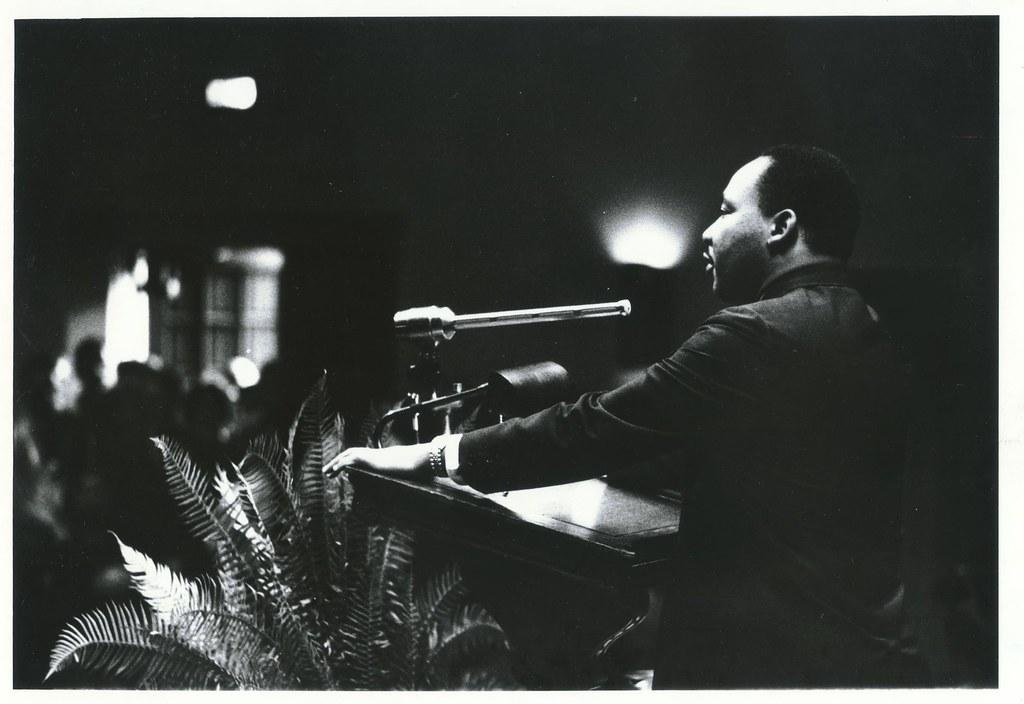Celebrating MLK Jr and Continuing His Work

Today we celebrate and remember the life of Dr. Martin Luther King, Jr, one of the most revered figures ever to fight for racial justice. Dr. King’s teachings on racial inequality are as important now as they were during his lifetime. We have White supremacists threatening the very fabric of American democracy and we have state-sanctioned violence ranging from police brutality against Black Americans to capricious implementation of capital punishment (the federal government has executed 3 times more people in the final 6 months of the Trump administration than in the previous 60 years combined). We must continue his fight and dedicate ourselves to eradicating racism.
Less is spoken, though, about Dr. King’s legacy beyond racial justice. He also spoke often of income injustice and eradicating poverty. In reality, these concepts are intrinsically linked as we can never have racial justice without economic justice. But economic justice is broader, affecting even those from majority racial groups. Dr. King cared as much for poor White, Asian, and Indigenous people as he did for poor Black people.
A second evil which plagues the modern world is that of poverty. Like a monstrous octopus, it projects its nagging, prehensile tentacles in lands and villages all over the world.
- Martin Luther King, Jr.
Economic disparities are a substantial barrier to diversity in medicine. One of the biggest predictors of MCAT and Step 1 scores is parental income (1). Thus when admissions committees in medical schools and residency selection committees evaluate applicants, how influenced are they by scores that are more a reflection of economic advantage than any innate skill? While we like to think of our system as meritocratic, is that true if the method of identifying merit is tied so strongly to a factor outside of the applicants’ control?
It’s alright to tell a man to lift himself by his own bootstraps, but it is a cruel jest to say to a bootless man that he ought to lift himself by his own bootstraps.
- Martin Luther King, Jr.
Let’s look at a case example of this. In a recent story published in Neurology Today (2), two college students talk about how they developed a two-drug cocktail to slow ALS progression. Here’s an excerpt from this piece:
The two college students began working their connections. Klee had grown up near Groton, CT, home to Pfizer's research headquarters. His parents knew a couple who were friends with friends of George Milne, the division's former chief. Milne agreed to meet with them and encouraged Cohen and Klee to keep plugging away. Then they found somebody who knew Dr. Tanzi.
“Jim Gusella, who had been my mentor, sent me an email to say they were trying to contact me,” Dr. Tanzi said. “I found out Josh was a Sigma Chi, my college fraternity. Plus, they were at Brown. I'm from Rhode Island originally, so there was another level of empathy there. Then I found out that Josh was a K-to-12 alumnus of Milton Academy. My daughter was going there too. With all those connections, I felt like I have to take this meeting.”
Essentially, these students were able to turn an idea into a reality because they were able to work connections to meet a Harvard researcher, Dr. Tanzi. And Dr. Tanzi agreed to take the meeting not because these students had a brilliant idea, but because they had connections to Rhode Island, a fraternity, and a $60,000 per year Boston-area prep school. It’s hard to argue any of this is meritocratic. The quality of their idea seems to have played no role at all. The article goes on to discuss how the students paid to run the first trial out of their own pockets and the second trial out of their parents’ pockets.
While I have nothing but respect for the success of these students and their ideas, I wonder how many other students have ideas that are as good or better but never get an audience with world-class, Harvard scientists to bring them to fruition or can’t afford to self-fund initial trials. When those students are applying to medical school or residency, they’ll be competing against others who have had the benefits of class working in their favor. It’s our job to see their potential also. Have they made the most of the opportunities they had, even if the opportunities were limited by their economic class? If one student is working in a restaurant while the other is in a lab, we need to be able to recognize this is likely due to necessity, and many of the standards we judge students by, such as unpaid summer research fellowships, are actually luxuries of privilege.
Another manifestation of social class in medicine is the difficulty navigating the twists, turns, and politics of a professional career. In fact, one recent study showed that class is a bigger impediment to managerial promotions than either race or gender (3). Of course, these are also additive factors, and intersectionality (e.g. Black women from lower socioeconomic background) would be expected to suffer this disparity at even higher rates. Dr. O’Brien provided a review of this subject from the Harvard Business Review that I have attached if you’d like to read more.
At Duke Neurology, we are taking active steps to mitigate class disparities. Our residency recruitment process is designed to account for this, rewarding applicants who have worked their way through school or are the first in their family to graduate from college as we would reward students with research experience or high Board scores. At the faculty level, our Faculty Handbook and Faculty mentorship program are designed to provide equal access to promotions. Yet there is always more that can be done. We still need to evaluate how class disparities affect staff hiring and promotions, for example. I welcome feedback from all members of the department about how we can make our department an equitable, just, and inclusive place to work. I encourage everyone to stay alert for these issues.
The ultimate tragedy is not oppression and cruelty by the bad people but the silence over that by the good people.
- Dr. Martin Luther King, Jr.
